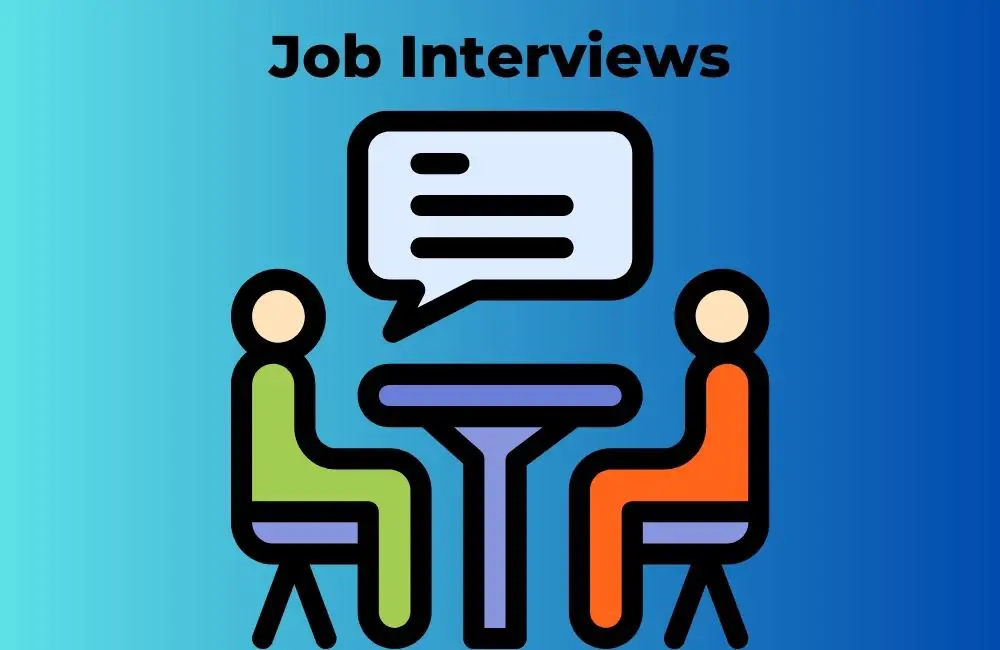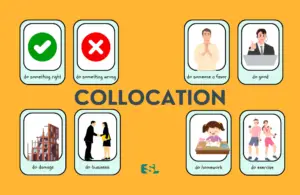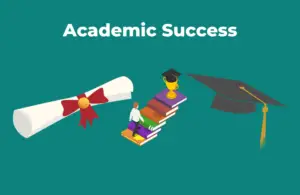An impressive job interview can be the gateway to landing your dream job. However, communicating effectively during an interview goes beyond showcasing your skills and experience—it also involves a solid command of the English language and a grasp of relevant vocabulary.
This article provides an in-depth exploration of key terms and phrases that can help you leave a lasting impression on potential employers.
Before I share the list of words, let me share a great book that can help you provide the best assistance to make you confident to answer questions in the interview. How to Answer Interview Questions: 101 Tough Interview (Amazon Link) is a great book to make the journey of job seekers easy and convenient.
Table of Contents
- 1. Words to Describe Your Skills
- 2. Words to Describe Your Experience
- 3. Words to Describe Your Career Goals
- 4. Phrases to Show Your Interest in the Role
- 5. Words to Describe the Company
- 6. Words to Ask About the Role and the Company
- 7. Words to Close the Interview
- Sample Conversation: Using Vocabulary for Job Interviews to Make an Impression
- In Conclusion
- FAQ: Vocabulary for Job Interviews: Impress Employers with Words
1. Words to Describe Your Skills
These words will help you express your abilities effectively, letting the employer know you’re equipped for the job.
| Word/Phrase | Meaning/Usage | Example Sentences |
|---|---|---|
| Proficient | Very good at doing something | “I am proficient in using Microsoft Office Suite, especially Excel.” |
| Meticulous | Very careful, paying great attention to detail | “I am meticulous when it comes to meeting project deadlines.” |
| Diligent | Showing care and effort in your work or duties | “I am known for my diligence and commitment to delivering high-quality work.” |
| Versatile | Able to adapt to many different functions or activities | “I am a versatile employee who can handle various responsibilities.” |
| Collaborative | Able to work well with others | “I have a collaborative work style and enjoy working in team environments.” |
| Efficient | Performing in the best possible manner with the least waste of time and effort | “I am an efficient worker who always strives to maximize productivity.” |
| Reliable | Consistently good in quality or performance; able to be trusted | “I am a reliable professional who always meets project deadlines.” |
| Resilient | Quick to recover | “I am resilient and can adapt quickly to change.” |
| Proactive | Taking the initiative, rather than waiting for things to happen | “I am proactive and always looking for ways to improve processes.” |
| Tech-savvy | Well informed about or proficient in the use of modern technology | “I am tech-savvy and comfortable learning new software and tools.” |
2. Words to Describe Your Experience
Use these words to communicate your past professional experiences more effectively.
| Word/Phrase | Meaning/Usage | Example Sentences |
|---|---|---|
| Experienced | Having knowledge or skills in a particular field | “I am an experienced project manager with over five years in the field.” |
| Accomplished | Successfully completed or brought to an end | “I have accomplished numerous projects during my tenure at my previous job.” |
| Managed | Have the position of supervising (staff) at work | “I managed a team of five professionals in my previous role.” |
| Coordinated | Bring the different elements of (a complex activity or organization) into a harmonious or efficient relationship | “I coordinated events for the marketing team in my previous role.” |
| Developed | Grow or cause to grow and become more mature, advanced, or elaborate | “I developed a new procedure that increased efficiency in our department.” |
| Initiated | Cause (a process or action) to begin | “I initiated a project that led to a 10% increase in sales.” |
| Supervised | Observe and direct the execution of (a task, project, or activity) | “I supervised a team of interns during the summer season.” |
| Implemented | Put (a decision, plan, agreement, etc.) into effect | “I implemented a new training program for new hires.” |
| Executed | Carry out or put into effect (a plan, order, or course of action) | “I executed a marketing strategy that increased brand awareness.” |
| Facilitated | Make (an action or process) easy or easier | “I facilitated team meetings to ensure efficient communication.” |
If you are searching for an effective English language vocabulary builder, try Word Power Made Easy: The Complete Handbook for Building a Superior Vocabulary (Amazon Link). This time-tested classic has helped millions achieve mastery of English and improve their communication skills in business, the classroom, and in life.
3. Words to Describe Your Career Goals
These terms can help you express your career aspirations and future plans.
| Word/Phrase | Meaning/Usage | Example Sentences |
|---|---|---|
| Aspire | To have a strong desire to achieve or become something | “I aspire to take on a leadership role in the future.” |
| Progress | To move forward or onward in space or time | “I hope to progress to a management role within the next five years.” |
| Advance | To move forward, especially to improve your situation or status | “I am looking to advance my career in the marketing industry.” |
| Elevate | To raise from a lower to a higher position; to uplift | “I aim to elevate my skills through continuous learning.” |
| Innovate | To introduce new ideas or methods or to think creatively | “My goal is to innovate in whatever role I’m in to improve efficiency.” |
| Expand | To increase in extent, size, volume, scope, etc | “I aim to expand my expertise in the emerging field of data science.” |
| Evolve | To develop gradually | “I aim for my role to evolve as the company grows.” |
| Master | To become very skilled or proficient | “I hope to master the skills needed for a leadership position.” |
| Cultivate | To develop or improve by education or training | “I intend to cultivate my project management skills.” |
| Nurture | To support and encourage | “I aim to nurture my communication skills.” |
4. Phrases to Show Your Interest in the Role
These phrases can convey your enthusiasm and commitment to the potential employer.
| Word/Phrase | Meaning/Usage | Example Sentences |
|---|---|---|
| I am eager to… | Looking forward to doing or achieving something | “I am eager to contribute to your team with my skills and experiences.” |
| I am excited about… | Very enthusiastic and eager | “I am excited about the opportunity to work with a dynamic team like yours.” |
| I am enthusiastic about… | Very interested in something and wanting to put a lot of effort into it | “I am enthusiastic about bringing my unique ideas to this role.” |
| I am keen to… | Very interested, eager, or wanting (to do something) very much | “I am keen to leverage my skills to contribute to your company’s goals.” |
| I am passionate about… | Having or showing strong feelings or beliefs | “I am passionate about developing efficient processes that improve workflow.” |
| I am committed to… | Willing to work very hard to support or believe in something | “I am committed to professional development and continuous learning.” |
| I look forward to… | Feeling pleased and excited about something that is going to happen | “I look forward to the chance to demonstrate my capabilities.” |
| I am interested in… | Having an attraction or desire to know more | “I am interested in opportunities that allow for career advancement.” |
| I am motivated by… | Stimulated into doing something | “I am motivated by challenges and problem-solving opportunities.” |
| I am inspired by… | To fill with the urge or ability to do or feel something | “I am inspired by the company’s mission and would love to contribute to it.” |
5. Words to Describe the Company
Using these words to describe the company not only shows you’ve done your homework but also aligns you with the company’s values.
| Word/Phrase | Meaning/Usage | Example Sentences |
|---|---|---|
| Innovative | Using new methods or ideas | “Your company is innovative, always pushing the boundaries of what’s possible.” |
| Dynamic | Characterized by constant change or activity | “This is a dynamic company that values employees who can adapt to new situations.” |
| Progressive | Favoring or advocating progress, change, improvement, or reform | “This company has a progressive attitude towards employee welfare.” |
| Prestigious | Respected and admired as very important or of very high quality | “Your firm has a prestigious reputation in the industry.” |
| Impactful | Having a major impact or effect | “The impactful work your team does in the community is truly inspiring.” |
| Resilient | Able to withstand or recover quickly from difficult conditions | “Your company has proven to be resilient in the face of the recent economic downturn.” |
| Influential | Having the power to make things happen by indirect influences | “Your company is very influential in shaping industry standards.” |
| Visionary | Thinking about or planning the future with imagination or wisdom | “Your company is visionary, always anticipating market trends.” |
| Sustainable | Able to be maintained or continued | “The company’s sustainable practices are commendable.” |
| Renowned | Known or talked about by many people; famous | “Your organization is renowned for its excellent customer service.” |
6. Words to Ask About the Role and the Company
These words will help you ask insightful questions about the role and the company.
| Word/Phrase | Meaning/Usage | Example Sentences |
|---|---|---|
| Prospect | The possibility that something will happen | “What are the prospects for growth and advancement in this position?” |
| Initiative | A new plan for dealing with a particular problem or for achieving a particular purpose | “Can you tell me about any recent initiatives your company has taken to increase diversity?” |
| Culture | The attitudes, feelings, values, and behavior that characterize and inform a group and its members | “Could you tell me more about the company culture?” |
| Expectations | Beliefs about what might happen in the future based on what has happened in the past | “What are the expectations for this role during the first three months?” |
| Challenges | A situation in which you find it difficult to achieve something | “What are some challenges that will face the person filling this position?” |
| Development | The process in which someone or something grows or changes and becomes more advanced | “What opportunities for professional development does the company offer?” |
| Priorities | The most important things you have to do or deal with, or the most important things to a particular person | “What are the immediate priorities for the person in this role?” |
| Growth | The process of increasing in size, value, or importance | “What are the company’s plans for growth over the next few years?” |
| Performance | How well a person, machine, etc. does a piece of work or an activity | “How does the company measure performance?” |
| Strategies | A detailed plan for achieving success in situations such as war, politics, business, industry, or sport, or the skill of planning for such situations | “What strategies does the company use to retain top talent?” |
7. Words to Close the Interview
These words can help you end the interview on a positive and confident note.
| Word/Phrase | Meaning/Usage | Example Sentences |
|---|---|---|
| Appreciate | To be grateful for something | “I appreciate the opportunity to interview for this position.” |
| Enthusiastic | Having or showing intense enjoyment, interest, or approval | “I am enthusiastic about the possibility of joining your team.” |
| Grateful | Feeling or showing an appreciation for something done or received | “I am grateful for the time you have spent with me today.” |
| Interested | Showing curiosity or concern about something or someone | “I am very interested in this role and I look forward to hearing from you.” |
| Excited | Very enthusiastic and eager | “I am excited about the possibility of contributing to your team.” |
| Motivated | Very eager to do or achieve | “I am motivated to bring my skills and experience to this role.” |
| Committed | Willing to work very hard to support or believe in something | “I am committed to helping your team succeed.” |
| Passionate | Having, showing, or caused by strong feelings or beliefs | “I am passionate about this industry and I am eager to contribute my skills.” |
| Engaged | Busy; occupied | “I am deeply engaged in my professional development and I am eager to grow with your company.” |
| Thankful | Pleased and relieved | “I am thankful for the opportunity to discuss the role and my qualifications.” |
To elevate your vocabulary in just 30 days, I recommend to my students an informative, fun, and accessible guide to utilizing powerful language. Millions of individuals have enhanced their academics, job skills, and confidence by dedicating just fifteen minutes daily to the exercises and tests of 30 Days to a More Powerful Vocabulary (Amazon Link), a top-selling. It offers step-by-step methods to bolster language prowess, discover compelling words, and daily vocabulary enhancement with pronunciation guidance.
Sample Conversation: Using Vocabulary for Job Interviews to Make an Impression
Situation: In a modern office conference room, Sarah is being interviewed by Mr. Thompson for a managerial position.
Sarah: Good morning, Mr. Thompson. Thank you for considering my application and providing this opportunity to discuss my qualifications in detail.
Mr. Thompson: Of course, Sarah. We’ve been on the lookout for someone with your expertise. From your CV, I can see you’ve had extensive experience in project management. Can you elucidate on how you’ve leveraged this in your previous roles?
Sarah: Certainly. In my prior role at XYZ Corp, I spearheaded a team of 20, ensuring projects were executed efficiently while maintaining optimal resource allocation. My emphasis has always been on fostering collaboration and enhancing team synergy.
Mr. Thompson: Impressive. How do you handle scenarios where you’re faced with tight deadlines or unexpected challenges?
Sarah: I believe in proactive problem-solving. When faced with challenges, I prioritize tasks, delegate effectively, and maintain open communication with stakeholders to ensure transparency and alignment.
Mr. Thompson: That’s a comprehensive approach. Our company values adaptability and resilience. Can you provide an instance where you showcased these traits?
Sarah: Absolutely. During a major product launch at XYZ Corp, we encountered supply chain disruptions. I swiftly re-evaluated our strategy, liaised with alternative suppliers, and ensured the launch proceeded with minimal delays. It was a testament to my adaptability and my commitment to deliver results.
In Conclusion
In today’s competitive job market, expressing yourself effectively is more important than ever. By familiarizing yourself with this vocabulary for job interviews, you’ll be able to describe your skills, experiences, and career goals accurately and impressively.
Remember, the key to a successful job interview is what you say and how you say it. The right words can make a powerful impression, setting you apart from other candidates and helping you land that dream job. So, use this vocabulary wisely and good luck with your job.
FAQ: Vocabulary for Job Interviews: Impress Employers with Words
1. What does “elucidate” mean in an interview context?
Elucidate, in the context of an interview, refers to the act of making something clear or explaining it in more detail. When an interviewer asks a candidate to “elucidate,” they are essentially requesting more specific information or clarity regarding a topic the candidate mentioned.
2. Why is “spearhead” a significant term for leadership roles?
The term “spearhead” implies taking the initiative and leading a particular project or effort. It showcases the individual’s ability to be at the forefront, drive changes, and guide teams towards achieving specific goals. In leadership roles, the capacity to spearhead initiatives is indicative of proactive leadership and the ability to inspire and motivate teams.
3. How does “resource allocation” relate to management?
Resource allocation is a crucial aspect of management. It pertains to how managers distribute and utilize available resources, such as finances, manpower, and time, to achieve organizational objectives. Effective resource allocation ensures that projects run smoothly, remain within budget, and meet set timelines.
4. Why is “team synergy” crucial in collaborative environments?
Team synergy is about ensuring that the collective efforts of a team are harmonized and more potent than individual efforts. In collaborative environments, this synergy results in improved efficiency, better decision-making, and innovative solutions. It promotes a culture where individual strengths are leveraged for the team’s overall benefit.
5. What does being “proactive” signify in a job context?
In a job context, being proactive means taking initiative, anticipating potential challenges, and preparing solutions in advance. Instead of waiting for problems to arise and then addressing them, a proactive individual will foresee issues and take steps to mitigate them. This approach often leads to increased efficiency and better outcomes in professional settings.
6. How is “stakeholder” different from “shareholder”?
A stakeholder refers to any individual or entity affected by a company’s actions, decisions, and policies. This can include employees, customers, suppliers, and even the local community. In contrast, a shareholder is an individual or institution that owns shares or equity in a company. While all shareholders can be stakeholders, not all stakeholders are necessarily shareholders.
7. Why is “adaptability” valued in the corporate world?
In the ever-evolving corporate landscape, conditions and challenges change rapidly. Adaptability is the ability of individuals or organizations to adjust to these changes swiftly and efficiently. Companies value adaptability because it ensures resilience in the face of unforeseen challenges and promotes a culture of continuous learning and growth.
8. What does “liaise” mean in a professional setting?
To liaise in a professional context means establishing and maintaining a communication link between two or more parties. It ensures that information flows smoothly, decisions are coordinated, and any potential issues are addressed promptly. Liaising is crucial when different departments or teams work on interconnected projects.
9. How does “transparency” influence trust in professional relationships?
Transparency in professional settings implies honesty, openness, and clarity in actions and communications. By being transparent, companies and individuals build trust, as stakeholders feel informed and involved. Trust, once established, facilitates smoother operations, better teamwork, and fosters a positive work environment.
10. Why is “commitment” a sought-after trait by employers?
Commitment denotes a strong sense of responsibility and dedication to a job or task. It implies that an individual will put in the necessary effort and time to achieve excellence in their role. Employers value commitment because committed employees are more likely to deliver consistent results, drive initiatives to completion, and contribute positively to the organization’s culture and goals.






